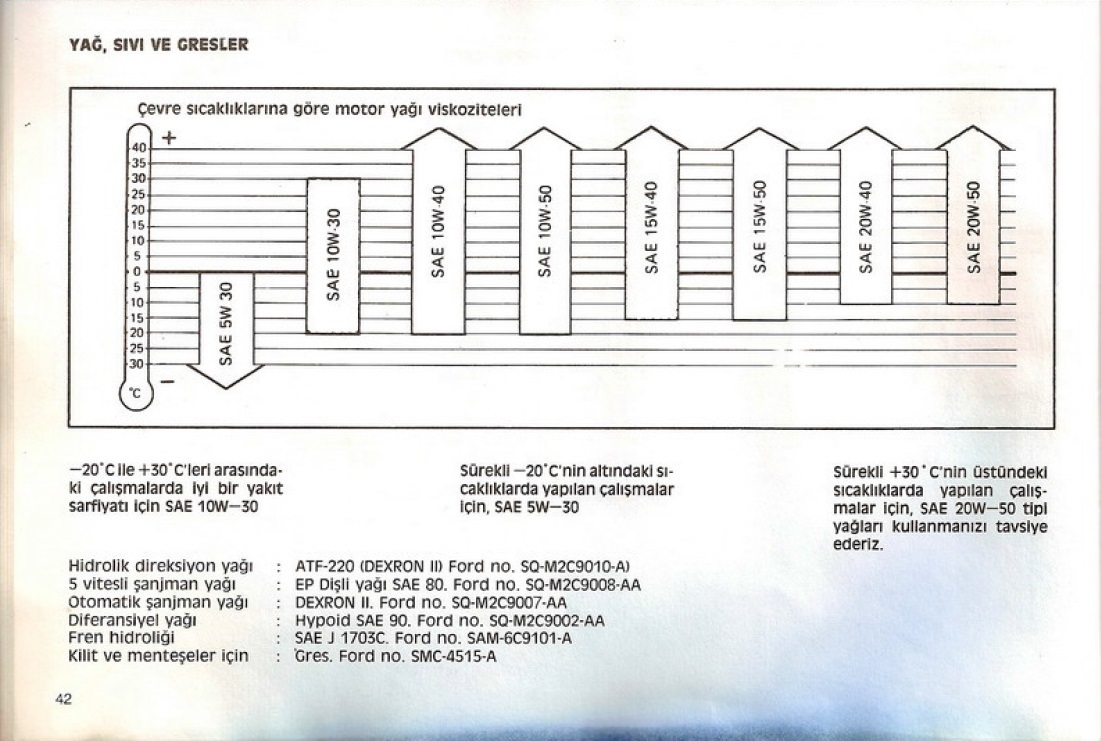Originally Posted By: CATERHAM
You saw the original recommended oil grades that were spec'd for this engine I posted on page one of this thread where even a 20 grade oil (HTHSV 2.6cP) is specified for ambient temp's generally not exceeding 70F?
Originally Posted By: CATERHAM
My first car as a kid was a Ford Capri with the same 2L engine.
All grades were recommended based on ambient temp's:
20W-20 up to 70F
10W-30 up to 70F
30 grade up to 90F
10W-40 up to 90F
40 grade 50F to 120F
Given that the 20W20 was/is Newtonian, and had an HTHS of 3 or greater, back in the day when such was specified (below) 70F, it's a bit disingenuous to claim that the Ford OHC was specified for a 2.6 HTHS oil.
As you well know (history lesson again), HTHS was not included in J300 until the late 80s, and included only as a result of poor performance of the early multigrades.
the 20W20 that you lay claim to proving the 2.6HTHS is in actuality an oil that you would label as "clearly a 30", and the straight 30 specified up to 90F is really representative of a modern A3/B3/B4, xW30 grade.


